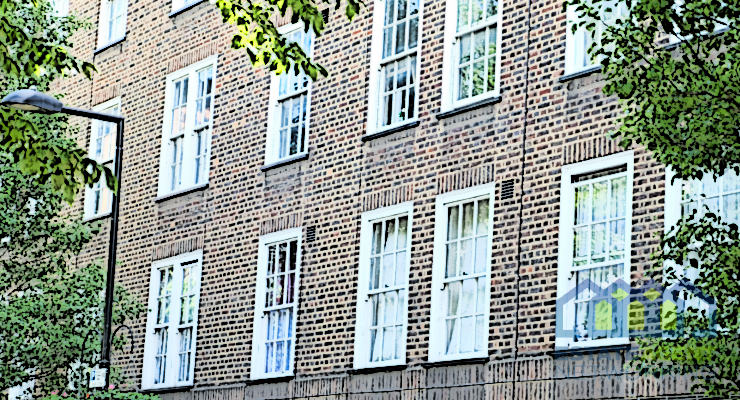Private Rental Business in doldrums due to supply shortfall
The UK private rental business is apparently in serious stress on account of a severe supply shortfall. One of the reasons why this has happened is the fact that a large number of young people prefer to rent rather than buy homes. Nearly 50% of 20-year-olds to 39-year-olds fall in this category. This is a serious issue that needs to be tackled at the policy level. That’s because all indications point to the fact that this youthful segment of the population will continue to exhibit this kind of behaviour for years to come.
This situation is not tenable in the sense that high rentals induced by high price can actually impact demand itself as is already happening. The overall supply of rental accommodation in the UK in March 2016 was at its lowest level since March, 2015, exactly a year ago. This even led to a contraction in demand in the same month. However, the price of rentals continues to rise and the average monthly figure across the UK stood at £764, while that for London was £1,543.
Scotland leading the way
Scotland saw the highest increase at £704, a Year on Year 11% increase. Scotland was followed by the Midlands where rent shot up to £646 in April, a 7.9% Year on Year rise. All of this can be attributed to a mismatch in the demand and supply equation. There are those however who see a tempering of the rise in rental prices, but this is a situation which will have to be watched as it unfolds.
The unfortunate part of this constant rise in rentals has been the impact on young families in most part of the UK. This is on account of their sheer inability to afford steep rent. This is especially true of Southern England. In fact a large number of young couples have given up the idea of having children. This is because their having to hand out a large part of their income as rent makes that simply untenable. This large part varies between 25% to a whopping 33%!
Calls for rental caps reintroduction
Something has got to give in this scenario and already there are calls for both building on parts of the green belt and the reintroduction of rental caps. Authorities are waking up to the realization that in order for children to grow up in homes that are not terribly overcrowded, one has to augment the supply of quality homes. If that calls for encroaching on some parts of the green belt, it’s an option that will have to be seriously looked at.
The crux of the problem lies in the fact that demand for housing is way ahead of supply. Also, this rising demand for housing accompanied by rising inflation and a low rate of salary growth creates an explosive situation. The government, for its part, is committed to finding a solution to this pressing problem and they plan to do that by attracting billions of pounds of investment to help construct quality homes for the specific purpose of renting. Accordingly the housing budget too has been doubled to an impressive £8bn, which will help increase the supply by helping build a substantial 400,000 new homes.
Currently, as potential landlords grapple with the introduction of a 3% stamp duty surcharge for buy-to-let properties and second homes, supply may end up becoming even more scarce, as it is feared that investors may not find rental income a viable option any more. A majority of the people in the UK, by some accounts, as high as three fourths of them, fear that with the way things are, future generations may have been priced out of both buying and even renting a home. That is because the average price of a house is an exorbitant £300,000.
250,000 homes needed
Millions are at risk of facing life-long instability and this has all the makings of a humongous and alarming crisis. 250,000 new homes are needed. However, serious efforts are being made to fill this gap. In December 2015 construction of 143,500 new homes was started. Although this was quite short of the required number, it was a vast improvement since the housing slump of 2009.
The debate over whether a shortfall in housing is causing rentals to go up can be answered in one word -yes. The shortfall is impacting both renting and buying of homes and this is nothing short of a national crisis. By the time the supply shortfall is adequately addressed, the exorbitant price and corresponding rental stranglehold of the housing market will be broken.
This requires strong will on the part of town planners and authorities and by all indications serious steps have either been already taken or are being contemplated. Grave as the problem undoubtedly is at present, it is not beyond repair, although it will take a few years of concerted effort to obtain the desired results. This nation has a record of rising to the occasion, and the housing crisis too will no doubt be adequately tackled.
At present the situation looks grim, especially with young people putting off important decisions like having children because of the steep rents they have to pay. Until the situation is resolved, the dynamics of demand and supply are going to have an impact on both home rentals and purchase. In the process, millions of people are going to suffer pain.
But as they say, life moves around in circles. The wheel will turn yet again sometime in the future and things will come back on an even keel. Till then, home renters and buyers are advised to keep an eye on the prevailing prices and go for what suits them best.
By Franki Chaffin-Edwards of The House Shop
Private Rental Business in doldrums due to supply shortfall
The UK private rental business is apparently in serious stress on account of a severe supply shortfall. One of the reasons why this has happened is the fact that a large number of young people prefer to rent rather than buy homes. Nearly 50% of 20-year-olds to 39-year-olds fall in this category. This is a serious issue that needs to be tackled at the policy level. That’s because all indications point to the fact that this youthful segment of the population will continue to exhibit this kind of behaviour for years to come.
This situation is not tenable in the sense that high rentals induced by high price can actually impact demand itself as is already happening. The overall supply of rental accommodation in the UK in March 2016 was at its lowest level since March, 2015, exactly a year ago. This even led to a contraction in demand in the same month. However, the price of rentals continues to rise and the average monthly figure across the UK stood at £764, while that for London was £1,543.
Scotland leading the way
Scotland saw the highest increase at £704, a Year on Year 11% increase. Scotland was followed by the Midlands where rent shot up to £646 in April, a 7.9% Year on Year rise. All of this can be attributed to a mismatch in the demand and supply equation. There are those however who see a tempering of the rise in rental prices, but this is a situation which will have to be watched as it unfolds.
The unfortunate part of this constant rise in rentals has been the impact on young families in most part of the UK. This is on account of their sheer inability to afford steep rent. This is especially true of Southern England. In fact a large number of young couples have given up the idea of having children. This is because their having to hand out a large part of their income as rent makes that simply untenable. This large part varies between 25% to a whopping 33%!
Calls for rental caps reintroduction
Something has got to give in this scenario and already there are calls for both building on parts of the green belt and the reintroduction of rental caps. Authorities are waking up to the realization that in order for children to grow up in homes that are not terribly overcrowded, one has to augment the supply of quality homes. If that calls for encroaching on some parts of the green belt, it’s an option that will have to be seriously looked at.
The crux of the problem lies in the fact that demand for housing is way ahead of supply. Also, this rising demand for housing accompanied by rising inflation and a low rate of salary growth creates an explosive situation. The government, for its part, is committed to finding a solution to this pressing problem and they plan to do that by attracting billions of pounds of investment to help construct quality homes for the specific purpose of renting. Accordingly the housing budget too has been doubled to an impressive £8bn, which will help increase the supply by helping build a substantial 400,000 new homes.
Currently, as potential landlords grapple with the introduction of a 3% stamp duty surcharge for buy-to-let properties and second homes, supply may end up becoming even more scarce, as it is feared that investors may not find rental income a viable option any more. A majority of the people in the UK, by some accounts, as high as three fourths of them, fear that with the way things are, future generations may have been priced out of both buying and even renting a home. That is because the average price of a house is an exorbitant £300,000.
250,000 homes needed
Millions are at risk of facing life-long instability and this has all the makings of a humongous and alarming crisis. 250,000 new homes are needed. However, serious efforts are being made to fill this gap. In December 2015 construction of 143,500 new homes was started. Although this was quite short of the required number, it was a vast improvement since the housing slump of 2009.
The debate over whether a shortfall in housing is causing rentals to go up can be answered in one word -yes. The shortfall is impacting both renting and buying of homes and this is nothing short of a national crisis. By the time the supply shortfall is adequately addressed, the exorbitant price and corresponding rental stranglehold of the housing market will be broken.
This requires strong will on the part of town planners and authorities and by all indications serious steps have either been already taken or are being contemplated. Grave as the problem undoubtedly is at present, it is not beyond repair, although it will take a few years of concerted effort to obtain the desired results. This nation has a record of rising to the occasion, and the housing crisis too will no doubt be adequately tackled.
At present the situation looks grim, especially with young people putting off important decisions like having children because of the steep rents they have to pay. Until the situation is resolved, the dynamics of demand and supply are going to have an impact on both home rentals and purchase. In the process, millions of people are going to suffer pain.
But as they say, life moves around in circles. The wheel will turn yet again sometime in the future and things will come back on an even keel. Till then, home renters and buyers are advised to keep an eye on the prevailing prices and go for what suits them best.
By Franki Chaffin-Edwards of The House Shop









